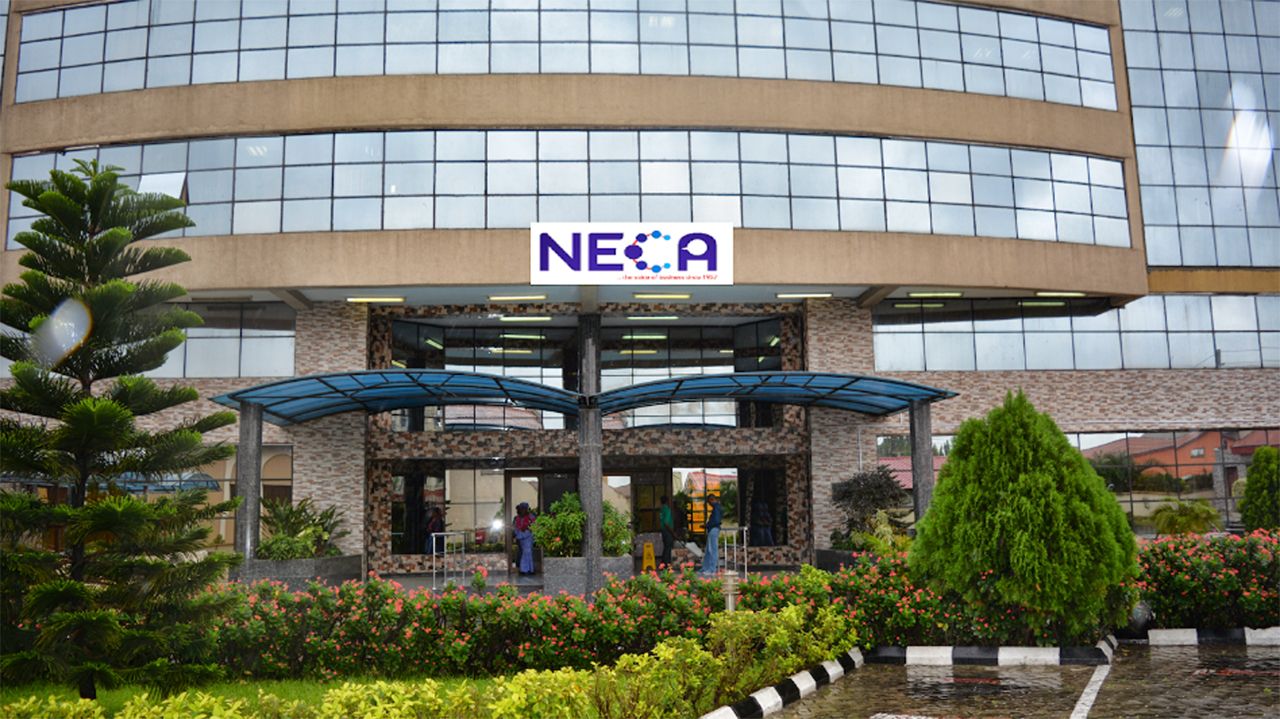A report by the ECOWAS Bank for Investment and Development’s (EBID) has shown that Nigeria’s share of West African Gross Domestic Product (GDP), declined from 53.3 per cent to 35.2 per cent between 2023 and 2024.
The Bank ascribed the decline to the exchange risks Nigeria experienced in 2024, which caused its nominal Gross Domestic Product (GDP) to decrease.
These are contained in the EBID’s “2025 West African Development Outlook” that was released yesterday by the Head, Macroeconomic Research and Studies, EDIB, Mr. Joseph Asenso.
The report said that “the exchange rate pressures Nigeria experienced in 2024 had an adverse impact on its economic valuation in nominal terms.
“In United States’ dollar terms, Nigeria’s economy declined from $363.82 billion in 2023 to $187.64 billion in 2024 in nominal terms.
“This moved Nigeria from accounting for 53.3 per cent of the sub-region’s GDP in 2023 to a little above 35 per cent in 2024.”
Côte d’Ivoire and Ghana, according to the report, grew their share of ECOWAS GDP in 2024 to 16.3 per cent and 15.5 per cent respectively while the rest of ECOWAS countries controlled 33 per cent of the sub-regional GDP.
The EBID projected that the GDP of ECOWAS sub region would grow by 5.0 per cent in 2025 down from 5.1 per cent in 2024 and to rebound to 5.4 per cent in 2026.
It also projected that average inflation in the sub-region would decline consistently in 2025 and 2026. “We expect fiscal balance to also improve from -4.8 per cent of GDP to -3.9 per cent.
“We expect debt to improve in the sub-region over the period to 56.3 per cent of the GDP at the end of 2026,” it said.
It attributed the deterioration of ECOWAS average inflation, which increased to 23.7 per cent in 2024 from 20.8 per cent in 2023, to the exchange rate-induced pricing movements in Nigeria as well as elevated prices in Niger.
“In the West Africa Economic and Monetary Union (WAEMU), average inflation improved to 3.4 per cent in 2024 from 3.8 per cent in 2023, although it exceeded the 3.0 per cent threshold.
“Only two countries, (namely) Benin and Senegal, of the eight WAEMU member states were able to achieve an average inflation of below the 3.0 per cent threshold,” the report said, adding that “average inflation in the West African Monetary Zone (WAMZ) and Cabo Verde deteriorated to 30.4 per cent in 2024 from 26.3 per cent in 2023, mainly on account of Nigeria’s level of inflation.”
According to the report, “none of the WAMZ member states were able to satisfy the 5.0 per cent threshold of the macroeconomic convergence criterion for inflation.
“The Alliance of Sahel State (ASS) also experienced an uptick in prices due to the fact that all three countries experienced a deterioration of the index.
“Average inflation in the ASS ended 2024 at 5.3 per cent, from 2.1 per cent in 2023, with none of the member states meeting the 3.0 per cent threshold of the WAEMU.”
The report also noted that the sub-regional debt profile has risen consistently over time.
It said that the ECOWAS debt-to-GDP ratio increased from 56.5 per cent of GDP in 2023 to 60.7 per cent in 2024.
In the WAEMU, it increased marginally from 63.8 per cent to 65.1 per cent in 2024, while it increased markedly from 52.6 per cent to 55.4 per cent in 2024 in the WAMZ and Cabo Verde.
The ASS recorded a decline in its public debt from 52.2 per cent in 2023 to 50.8 per cent in 2024.
The report said that the public debts of Cabo Verde at 113.7 per cent of GDP); The Gambia at 72.9 per cent of GDP); Ghana at 70.5 per cent of GDP); Guinea-Bissau at 82.3 per cent of GDP); Senegal at 113.7 per cent of GDP and Togo at 70.6 per cnt of GDP) exceeded the 70 per cent ECOWAS Macroeconomic Convergence Criterion (MCC).
“That said, eight out of the 15 member states recorded an improvement in their debt profiles.
“Sierra Leone successfully reduced its debt-toGDP by 6.9 percentage points followed by Ghana at 5.9 percentage points and Niger at 4.7 percentage points.”
But “Guinea at10.5 percentage points recorded the largest leap in its debt-to-GDP ratio, followed by Senegal’s 6.3 percentage points and Nigeria’s 4.2 percentage points.”





